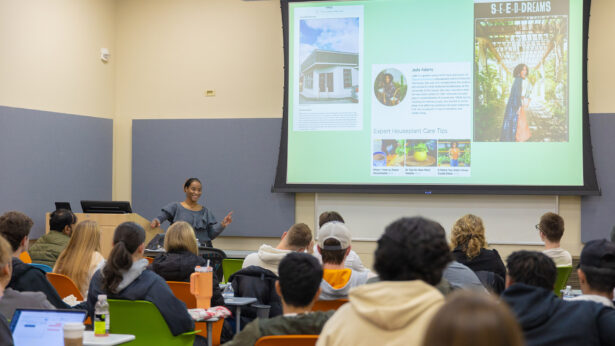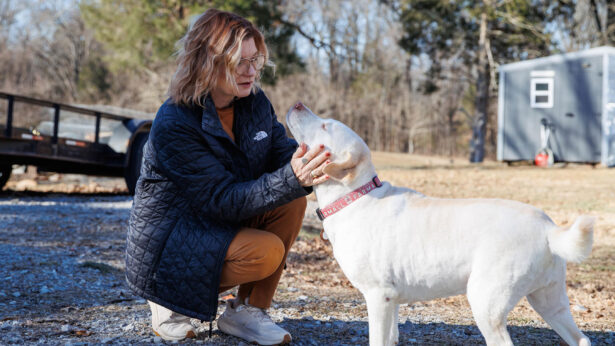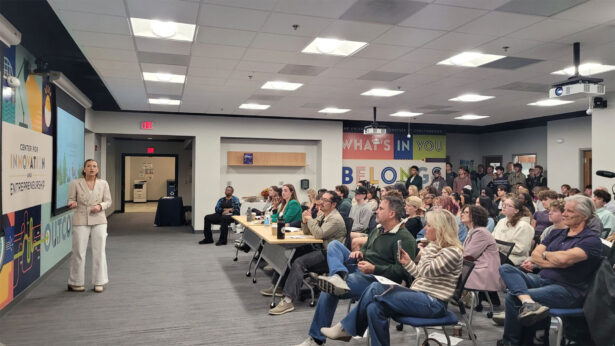Members of the UT College of Veterinary Medicine’s alumni council are helping the college stay in touch with its graduates, recruit students and plan continuing education programs. The council also has given a boost to alumni giving. Last fall, the council welcomed incoming students, their mentors, families and friends to campus. For more information, contact Megan Murray Dugan at 865-974-4379 or mdugan@utfi.org.
Informed Drought Decisions
Tennessee agriculture has languished under historic and unseasonably hot and dry weather. In a period of profound weather impacts, UT Extension is marshaling its resources to assist row crop and cattle producers in matters that affect their bottom lines and lives. Last summer, Extension launched a website that provides farmers with direct access to information that can help them make the critical and sometimes heart-wrenching decisions necessary to keep their operations and families financially viable.
The website, utextension.tennessee.edu/drought, features content from livestock specialists, plant and pest specialists, veterinarians, family science experts, environmental engineers, horticulturists and forestry and wildlife experts from across the state to address the gamut of issues that drought conditions bring.
Farm Credit Scholars
The UT College of Agricultural Sciences and Natural Resources welcomed its first group of five Farm Credit Scholars last fall. These selected students participate in customized coursework, an international experience, mentoring opportunities and a Farm Credit internship. The program also provides a $2,000 scholarship. “As long as people need food, fiber and fuel, agricultural careers are going to be in the forefront,” says Caula Beyl, dean of the college.
Read the Label
A study examining the relationship between nutritional label use and obesity shows shoppers, particularly women, who read food labels are thinner than those who don’t. Researchers, including Steven T. Yen, a professor in the Department of Agricultural and Resource Economics, used data from a national survey conducted by the Centers for Disease Control and Prevention. “Reading food labels and consumer labels is important because it allows shoppers to make better dietary choices and food purchases,” Yen says.



